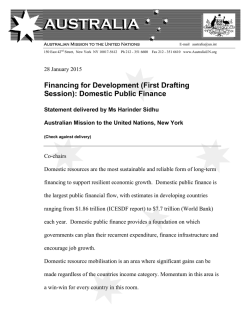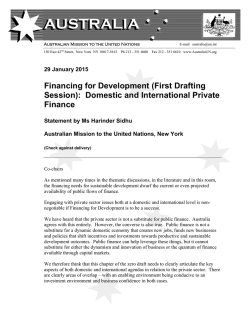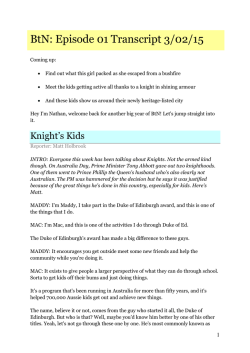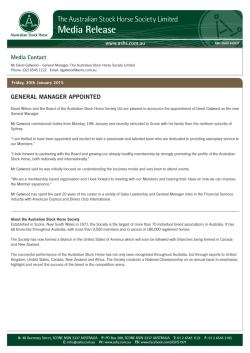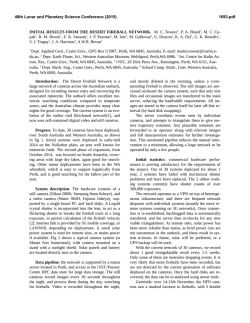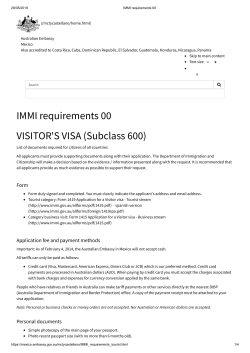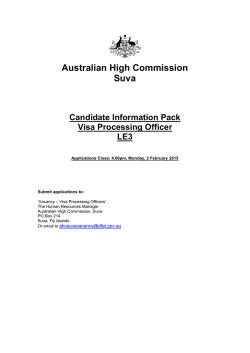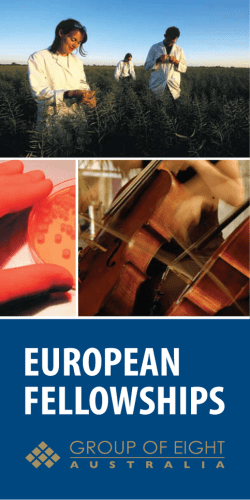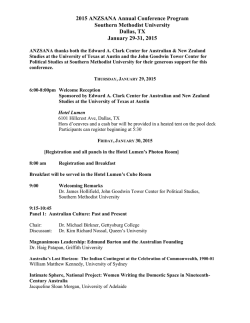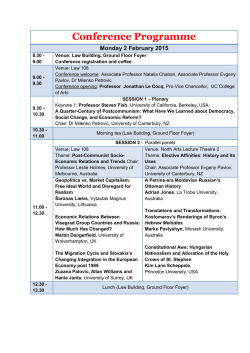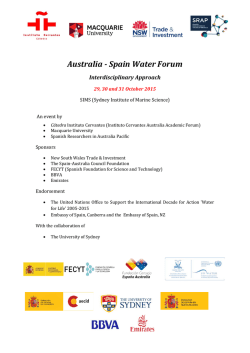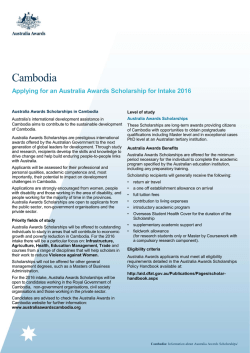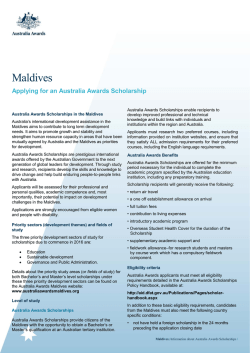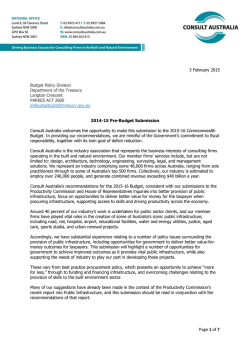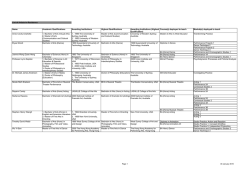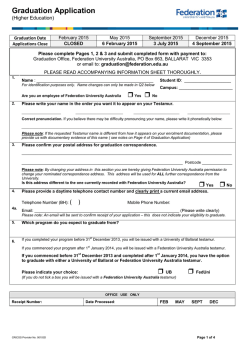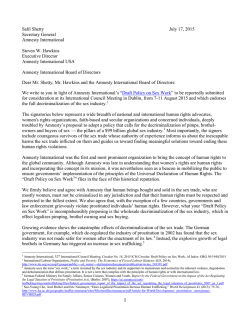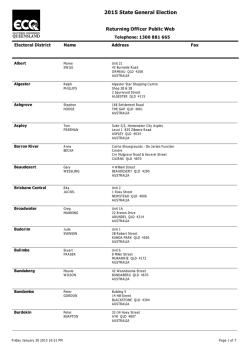
AUSTRALIA
AUSTRALIA AUSTRALIA Australian Mission to the United Nations 150 East 42nd Street, New York NY 10017-5612 Ph 212 - 351 6600 E-mail [email protected] Fax 212 - 351 6610 www.AustraliaUN.org 29 January 2015 Financing for Development (First Drafting Session): Trade Facilitation and Aid-forTrade Statement by Ms Harinder Sidhu Australian Mission to the United Nations, New York (Check against delivery) Co-chairs, In relation to trade, Australia will focus on two key issues: 1) Aid for Trade; and 2) Trade facilitation. Australia has seen from its own experience the significant economic gains made from trade liberalisation and implementing domestic reforms to better facilitate trade. No country has sustainably reduced poverty without opening itself to trade, and Australia recognises the need to progress better market access for vulnerable countries, including duty free and quota free approaches and implemented these a decade ago (2003). -2- Aid for Trade Australia supports the inclusion of aid for trade issues in the elements paper and would like to see issues around trade facilitation and aidfor-trade given a strong focus in the Addis outcome. Research by the World Trade Organization research shows that every dollar invested in aid-for-trade is typically associated with an increase of around $8 in exports in developing countries1. Australia has therefore made aid-for-trade a key priority of its aid program and has set a target of increasing aid for trade support to 20 per cent of our total development investments by 2020. o At a bilateral level Australia works closely with regional partners to improve critical transport infrastructure to facilitate trade (transport infrastructure (PNG, $400 million over 5 years). o We also work with smaller partners including NGOs to assist smallholder producers and workers access international markets (Fairtrade Australia New Zealand, $4.5 million over four years from October 2014). o At the multilateral level, Australia’s Global Trade Integration Facility ($60 million over 4 years) was launched in July, to support projects on trade policy and regulatory reform. This includes the World Bank’s Trade Facilitation Support Program, which will help developing -3- countries make their customs and other border processes more efficient. Trade Facilitation Australia would also note its support for the implementation of the WTO Agreement on Trade Facilitation (ATF), which could unlock an estimated increase in global GDP by US$1 trillion per year and create 21 million jobs, 18 million of which would be in developing countries. The practical steps set out in the ATF reinforce a number of key issues which have been raised in these discussions, including making it easier for businesses from developing countries to trade, help land locked countries, improve governance and assist regional integration, which Australia sees as fundamental. More and better trade will also unlock further financial flows, which will be critical to the success of the sustainable development agenda. Finally, we would like to qualify arguments in the elements paper around the dangers of fragmentation around trade agreements. Australia is a strong supporter of the multilateral system. However, we must also recognise the momentum and progress that can be gained through smaller forums which can move discussions forward which can then be picked up in larger, complex and difficult negotiations. -4- Australia looks forward to the WTO 10th Ministerial Conference in Kenya at the end of this year, as the appropriate forum to negotiate trade issues, but we feel that building momentum and reflecting actions occurring in the WTO can play a positive role in the Addis outcome. Thank you.
© Copyright 2026
